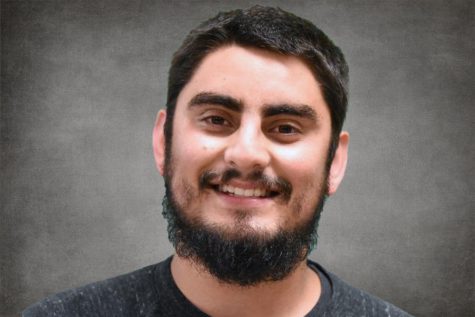Gateway program creates pathway to graduation
May 1, 2019
Second chances are something many high school students never receive, during high school.
However, what if a program existed that could not only keep students from dropping out of high school but could help them graduate.
There is a program like that. It’s called Gateway to College and it exists at Contra Costa College.
Dr. Karl Debro, Gateway to College manager, estimates that 120-130 students are currently attending Gateway on the CCC campus.
Debro said Gateway recruits local students twice a year, once in the fall and again in spring.
Gateway to College was initially started in 2000 by Portland Community College and was shortly thereafter funded and replicated by the Bill and Melinda Gates Foundation in 2003. The purpose of the Gateway program is to support 16- to 20-year-olds who drop out of high school or aren’t on the path to graduate on time for their class.
Since 2003, colleges in 19 states participate in the program with California having five locations throughout the state — two in the Bay Area.
The other Bay Area Gateway to College program is at Laney College in Oakland.
CCC’s Gateway program is a partnership between Contra Costa College and the West Contra Costa Unified School District (WCCUSD).
It allows students ages 16-20, who have dropped out of high school or are unlikely to graduate, find success through support of the Gateway program with one-on-one mentorship, foundational college courses such as reading, writing, math, and other college skills classes.
Eighteen-year-old Alex Zevallos has been in the Gateway to College program for 18 months. When he first came to the program, he felt optimistic after having a bad experience at his former high school, De Anza in Richmond.
This is the last semester Zevallos will attend the Gateway to College program. “I felt optimistic coming into Gateway because I came from not so good of a high school because I didn’t like how it was run,” Zevallos said.
Zevallos’ said his experience in the public high school system was an issue because the school didn’t seem interested in the students.
He said the Gateway staff is very different from instructors at De Anza.
“The (Gateway) staff cares about students. They try to help students meet what they need for graduation,” he said.
Zevallos said he feels like a weight has been lifted off his shoulders because the program helped him set new priorities in life. The staff offers activities during class like resumé building and allows students to use skill-finder websites.
The application process for the Gateway to College program includes attending an information session where students learn more about the program. Dates for the upcoming fall 2019 informational session and the three steps to apply are available by visiting the CCC website and clicking under the Gateway to College link.
Students who are thinking of applying must also apply to CCC as their first step.
If chosen for an interview, applicants must bring both completed CCC and Gateway applications and be prepared to explain why Gateway would be an excellent fit for their educational goals.
Debro said the program, in spite of all the efforts of its students and staff, has a negative stigma surrounding it on campus.
Anna Chuon is a resource specialist for the Gateway to College program and describes it as a second chance for students who are short on credits and behind or have dropped out of high school entirely.
Chuon said students she works with come all kinds of life and educational situations. Some come from neglected educational environments and others have gone through personal issues.
Chuon’s duties include helping student one-on-one, and sometimes that requires text message checkups. She wants students to stay on task so she checks up on their progress. “We don’t easily push out students,” Chuon said. “We tailor the program to their needs. We want them to attend school and not give up easily.”
Besides helping students graduate, Gateway also hosts events for students as would a traditional high school.


